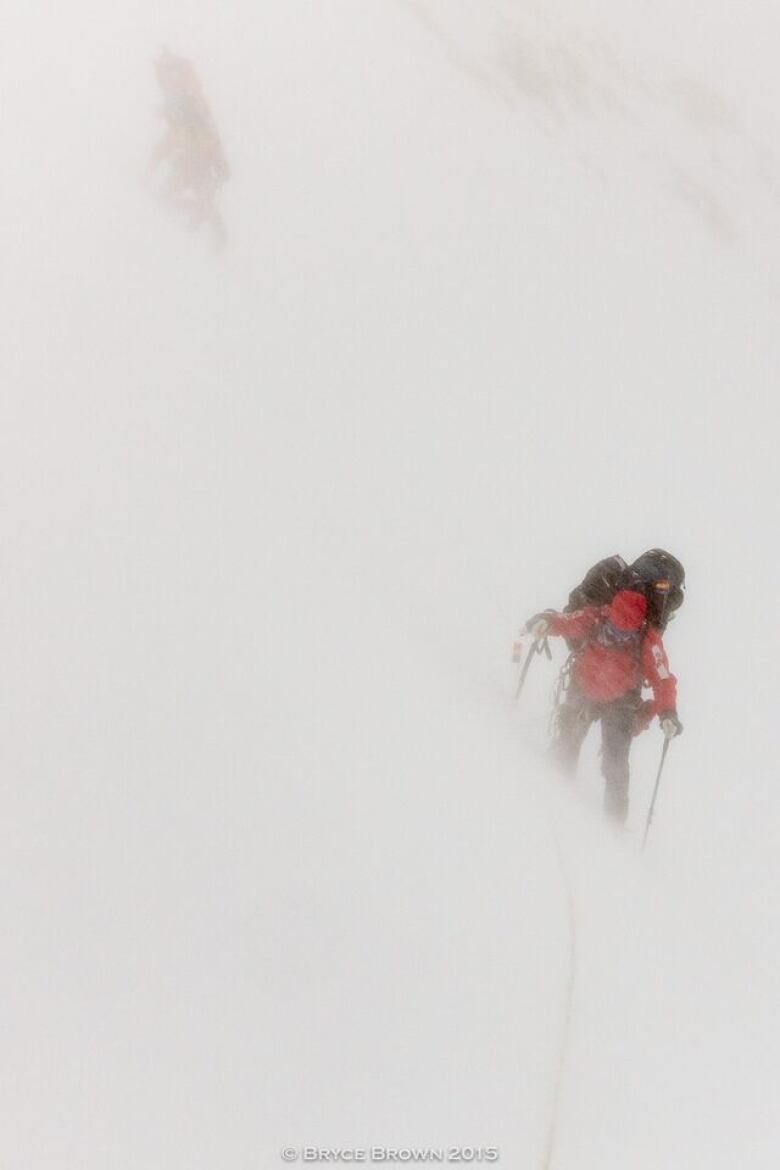Rescued climber recounts terrifying week stranded on Yukon's Mount Logan
'We were actually crawling at one point just trying to make forward progress,' says Bryce Brown
Three experienced climbers rescued from Canada's highest peak last week remember a harrowing week trapped at an elevation of nearly 6,000 metres with extreme wind and temperatures, with a hand-dug snow cave their only means of respite.
Bryce Brown says 160 km/h winds made the descent impossible after reaching the summit of Mount Logan on June 2, in Yukon's Kluane National Park.
The summit, the highest peak in Canada, stands at 5,959 metres. Extreme altitude sickness can occur for most people at heights over 5,500 metres.
"We were actually crawling at one point, just trying to make forward progress," says Brown, who's recovering this week in Canmore, Alta.
Created 'snow cave'
Brown says he knew his party was in trouble when he couldn't see past his hand. The winds were so strong, he feared they would literally be blown off the mountain.

The climbers spent the next three days cocooned under two metres of fresh snow, just 200 metres below the summit.
After tunnelling out of their snow cave, says Brown, they made slow progress down the mountain, descending just a few hundred metres the first day. By June 9, they were still at the 5,300-metre mark, trapped again by stormy weather.
Brown says one of the climbers suffered frostbite. By then, they were all showing signs of altitude sickness.
"Our food and our fuel supplies were dwindling," says Brown, "and so at that stage, we were starting to face the reality that we might not get off the mountain under our own power."
The group then decided to use its satellite phone to call Parks Canada. Two days later, a specialized high-altitude helicopter reached them at their 5,300-metre camp and flew them to safety.
After the rescue, Parks Canada Yukon posted a video of a flyover of the rescue site on Mount Logan.
"It was fantastic," says Brown of the rescue. "If the weather hadn't cleared to allow the helicopter evacuation, within a few days, we would have been in serious trouble."